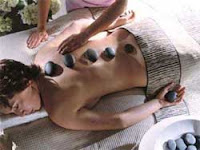Spine. 2009 Apr 20; 34(9): E333-6Tsai J, Huang TJ, Huang CC, Li YY, Hsu RWSTUDY DESIGN: Case report. OBJECTIVE: To describe the case of a patient who habitually chewed betel quid and presented with intractable lower back pain owing to L4-L5 discitis caused by Eikenella corrodens. SUMMARY OF BACKGROUND DATA: E. corrodens is a normal inhabitant of mucosal surfaces in humans, particularly the oral cavity. Vertebral discitis due to E. corrodens is extremely rare. Discitis caused by E. corrodens in a habitual betel quid chewer has not been reported thus far. METHODS: A 52-year-old man had suffered from lower back pain for many years, and it worsened 3 months before admission. He had had severe periodontitis because of habitual betel quid chewing for over 10 years. RESULTS: The patient underwent staged spine surgeries because of the coexistence of L4-L5 discitis and isthmic spondylolisthesis. Tissue culture revealed the presence of E. corrodens. One and half years after the operation, the patient was fully ambulatory but demonstrated mild atrophy in the right thigh compared with the left thigh. CONCLUSION: E. corrodens discitis is extremely rare. We hypothesize that E. corrodens is a potential causative organism of discitis in patients who habitually chew betel quid.



